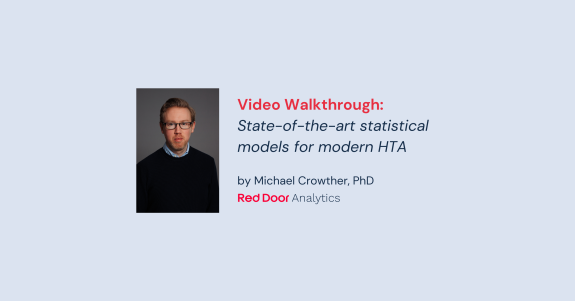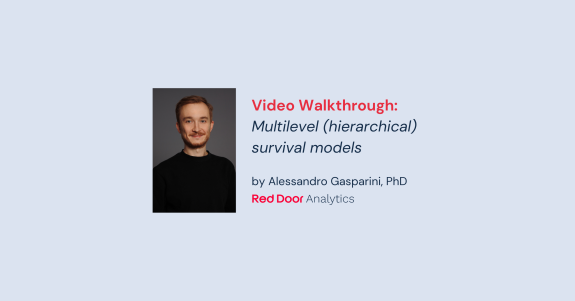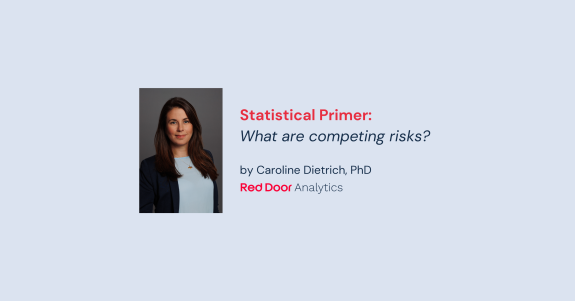Sandra is a biostatistician and associate professor in clinical epidemiology at the Department of Medicine at Karolinska Institutet. For the last 10 years her research has been focused on survival and survivorship issues after cancer and in this context she is the principal investigator of several projects related to late effects after lymphoma. She joined Red Door Analytics in 2022 as an affiliated researcher and is part of our teaching staff. Sandra is a keen and frequent lecturer at the different clinical research schools at Karolinska Institutet. She is a specialist in survival analysis and methods for competing risks and has a long track record of teaching these topics to both statisticians and non-statisticians across Sweden as well as internationally.
Sandra Eloranta, PhD
Scroll Down
Associate Professor, Karolinska Institutet
Videos
State-of-the-art statistical models for modern HTA
At @RedDoorAnalytics, we develop methodology and software for efficient modelling of biomarkers, measured repeatedly over time, jointly with survival outcomes, which are being increasingly used in cancer settings. We have also developed methods and software for general non-Markov multi-state survival analysis, allowing for the development of more plausible natural history models, where patient history can […]
Learn more Videos
Multilevel (hierarchical) survival models: Estimation, prediction, interpretation
Hierarchical time-to-event data is common across various research domains. In the medical field, for instance, patients are often nested within hospitals and regions, while in education, students are nested within schools. In these settings, the outcome is typically measured at the individual level, with covariates recorded at any level of the hierarchy. This hierarchical structure […]
Learn more Statistical Primers
What are competing risks?
Competing risks In survival analysis, competing risks refer to the situation when an individual is at risk of experiencing an event that precludes the event under study to occur. Competing risks commonly occur in studies of cause-specific mortality, as all other causes of death than the one under study might happen before the individuals “have […]
Learn more 



